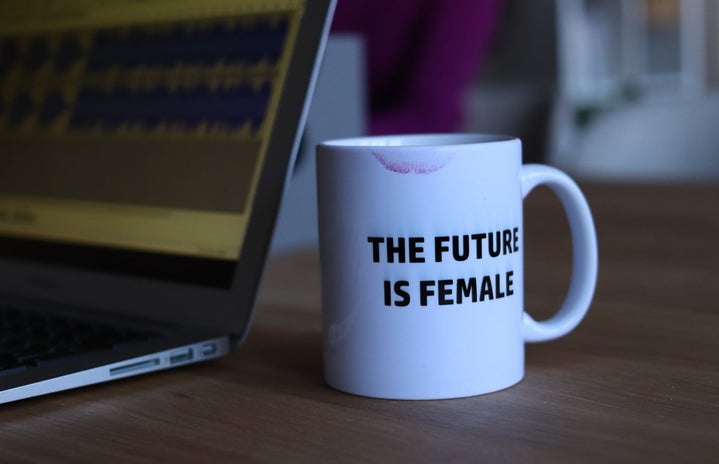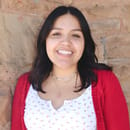Growing up, my mother always taught me what it means to be a feminist. She would talk to me about her upbringing, and every time she watched her mother cry because of machismo. She made it her mission to break generational cycles, and her journey to the United States was to help ensure I had a future different from the many women who came before me. What my mom failed to realize, however, was that not everyone saw things the way she did. As a Mexican-American woman, my battle with feminism and sexism in the United States is one not just against the patriarchy, but also one of trying to insert myself into uncomfortable spaces such as higher education, the feminist movement in the U.S., and reaching positions designed for anyone but me.
I understand the privilege of growing up in a Mexican home where machismo was not welcome, and one where feminist values were instilled since before I could speak. I grew up learning about artists like Frida Kahlo and Aurora Reyes, reading works by Gloria Anzaldúa, and of course, learning about Dolores Huerta. These women were household names and I was constantly reminded that many of my opportunities were because of women like them.
At school, however, that was never enough. I quickly realized that it was because the school system I was participating in was not one in which I was the student in mind. I didn’t learn English until about the first grade, and though in Spanish I could read you so much, that wasn’t the case with the books I was assigned. This meant that most of my teachers assumed I was dumb. However, that was not the case. I loved school, I loved reading and writing, and eventually, my teachers noticed. Despite this, for a long time, my teachers didn’t view me as a student who would attend college, and one even insinuated that I probably wouldn’t graduate high school.
Gloria Anzaldua, a renowned Chicana scholar, writes about just how powerful writing can be. Her work has always inspired me, and this excerpt about writing summarizes why I love it so much. Writing is an outlet where you hold the power to say anything you want, yet it is such a powerful tool because for so long it was not a tool accessible to many, including women. Especially not Mexican women.
My grandmother didn’t know how to write. Due to that, things like my good grades and my interest in college were feminist wins for the women in my family. It was to them, the best thing I could possibly do because it was a dream that none of them got to live out. My grandma simply wanted to put thought to paper and her nieta got to go to college. I don’t see many people like me in my classrooms. Attending a predominantly white institution has turned my education into a part of my feminist experience. Mentioning that to my peers, however, often leads to that being invalidated because for many white women it is the norm, the expectation.
The image above is of me and my roommate at the Women’s March in October. My sign reads, “If I wanted the government in my womb, I’d f*** a senator.” I often think about how much privilege I have for attending this event and being able to publicly hold this sign safely, and it fills me with so much guilt sometimes because so many of my family members in Mexico risk their lives every single day for simply being women. Their experiences are vastly different from my own.
In the United States, the feminist movement is one that does come from many places of privilege. I came from a low-income household and I am a first-generation student. I grew up cleaning houses for the same kind of families of the students I now go to school with, many of whom attend marches like this one. This has led to a constant battle of how I fit into this movement. I do not resemble the women of these movements, but it is also something I am passionate about, so fighting for these spaces is, in its own way, a battle.
Intersectionality has shaped my feminism because me being Mexican-American and me being a feminist are not mutually exclusive. Neither are my beliefs nor my experiences. Everything about me is puzzled together to shape my feminism, but the feminist movement in the U.S. isn’t rooted in intersectionality.
My feminism is intersectional because everything in our lives shapes our beliefs and vice versa. It is where these movements started in the first place, and so along with my experiences, that of my ancestors also shapes my feminism. I firmly believe, however, that the feminist movement that exists today in the U.S. is not intersectional.
The final battle that my feminism internally struggles with is positions of power. Growing up, systemic racism, poverty, and lack of adequate resources are all issues that I have seen impact my loved ones, and the purpose behind my education and my activism is to ensure that I can one day be in a position to help change these issues. As an international affairs major, my ultimate goal is to be involved in U.S. policy. As a little girl, I swore I’d be the president. While that goal has since changed, the fact that all but one U.S. president have been white and all have been men hasn’t. It is no surprise that many of these careers are male-dominated.
I believe my feminist experiences have ultimately formed my most important values. They have shaped my education, my desire for a career, and have been what allowed me to learn about a past that continues to be washed away. Those desires are often knocked down by a world written for white men. It is not easy to occupy these spaces, especially not as a Mexican-American woman. Places like CU are these types of spaces, and while looking around has often filled me with loneliness or self-doubt, I am quickly reminded that it is not just about me but the many women who, in their own way, are also fighting for these spaces and for these beliefs.
My feminist experiences in the U.S. have been shaped by my journey through higher education, trying to figure out where I fit in its feminist movement, and my desire to have a job in a male-dominated field. As a Mexican-American woman, I understand that I hold an insane amount of privilege to have grown up in a space where voicing this has been possible, and that has rooted my feminism in intersectionality.


